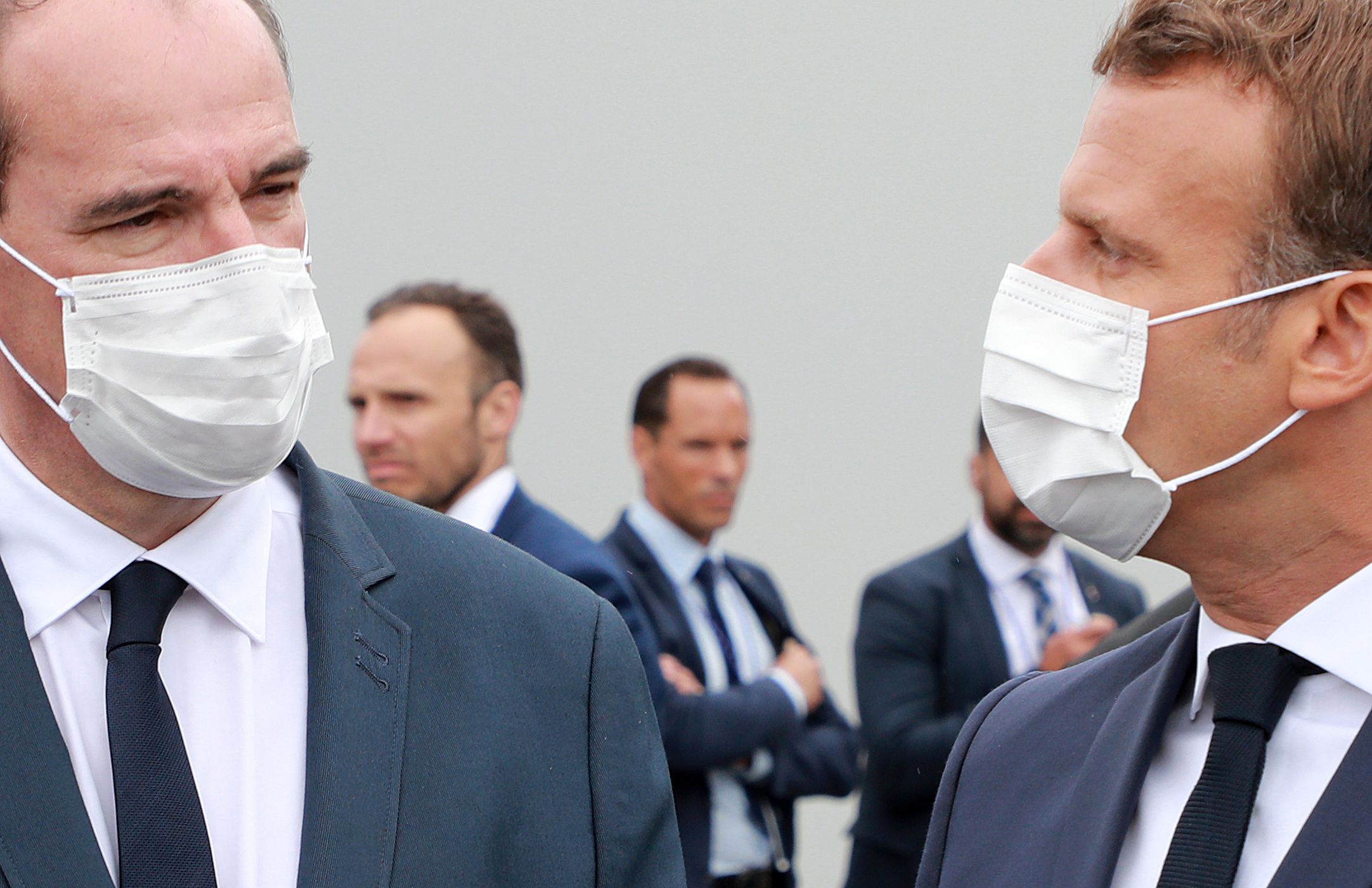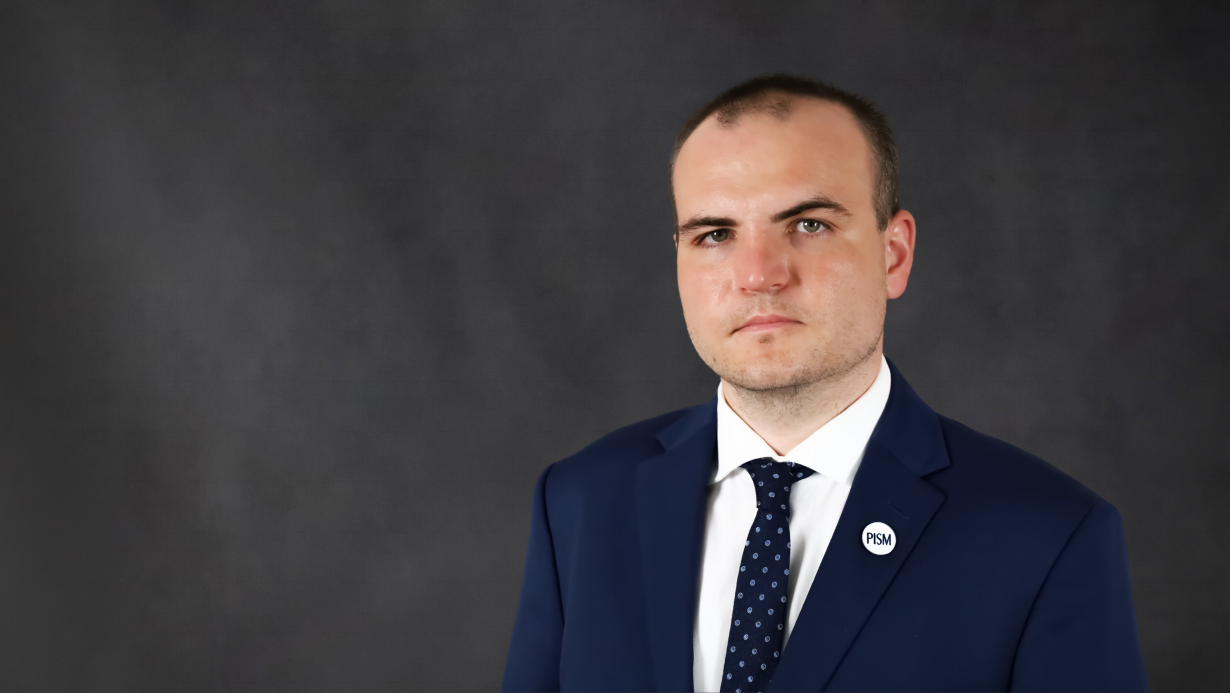Reinforcing Macron: Priorities of the New French Government

Changes in the French government had been announced before the pandemic, as part of preparations for the presidential election scheduled for April 2022. Besides a new prime minister, changes were also made in the Ministries of the Interior, Justice, Culture, Ecological Transformation and Agriculture. The new government has 30 ministers (including 16 heads of ministries) and 12 secretaries of state, making it the biggest one in the history of the 5th Re
Improving Image
Since becoming president, Macron’s main task has been to reform the economy, reshuffle the welfare system and reduce public debt. According to the president, France should recover its competitive edge and return to the first league of world economies. However, the pandemic forced Macron to temporarily modify his priorities. The new government has therefore been asked to renegotiate pension reform, rejected earlier by trade unions, while its predecessors conducted a public intervention costing €400 billion, in order to save the economy from collapse during the lockdown. Public debt, now reaching 100% of GDP, will only increase, making it necessary to implement a harsh policy of savings in post-pandemic France.
Therefore, following the first decrease of the COVID-19 infection rate, Macron returned immediately to his plans of increasing the French economy’s competitiveness, bearing in mind that the policy of savings amid the worsening crisis (a 10% fall in GDP is predicted by the end of 2020) could endanger his re-election. Even though his ratings are stable for now (approximately 50% of the French declare trust in him), Macron decided to initiate political change by presenting a new government. He wants to sell his old reforms in a new package, as a means to reinforce the state. It is also aimed to correspond with the growth of interventionist moods in French society.
Personnel continuation is clear in the ministries crucial for the international position of France, with Jean-Yves Le Drian still heading French diplomacy and Florence Parly remaining as the Minister of the Army. The Ministry of Economy and Finances will still be headed by Bruno Le Maire, architect of Macron’s economic policy, previously affiliated to the centre-right.
New Legitimisation of Reforms
Macron wants to convince French citizens that renouncing some social benefits does not imply abandoning state intervention. On the contrary, it can strengthen the state’s efficiency. By opposing the trade unions’ claims that the French social system is an element of sovereignty, Macron argues that Sino-American rivalry requires France to make an effort to maintain its technological advantages. That is why Castex has presented reforms and lower taxation as a patriotic act, inherent to France’s fight for a higher rank in the world economy. To make these arguments more credible, Castex is likely to focus France’s foreign policy more on promoting exports, fighting social dumping and tax havens, and decreasing the country’s dependency on Chinese joint-venture partners. Simultaneously, the new prime minister (calling himself as a “social Gaullist”) has confirmed his support for the concept of the welfare state, which he claims only needs to be reshuffled by necessary reforms to become more reasonable (help for the neediest, especially young, jobless people). Castex emphasises that bureaucracy frequently crushes the initiatives of citizens and local authorities. A symbolic step towards decentralisation is to delegate decisions on creating jobs in local public administration to prefects (still appointed by the president).
The policy of savings will be followed by investments in reindustrialisation. The state wants to allocate €100 billion to this strategy, including funding from the Recovery Plan for Europe, in order to rekindle industrial production on French territory (especially in the pharma and automotive sectors). Reindustrialisation will be linked to ecological transformation, especially support for electric and hydrogen technologies for car and rail transport (possibly also air transport in the future), the construction of wind farms and the transformation of agriculture. Public aid for the most important companies (such as Air France and Airbus) will be made conditional on reductions of emissions. At the same time, opposing the demands of the Green Party, the government defends the use of nuclear energy. Fearing the reaction of middle-class voters and deeper recession due to lack of investments, Macron’s party also opposes some decisions of left-wing city councils willing to limit car traffic and real-estate investments.
Political Calculations
The new prime minister became widely known to the public only in the spring, when the president asked him to coordinate the lifting of pandemic restrictions. Macron appreciated his work. Castex suited the need for a new prime minister to be a centre-right politician, as competent as his predecessor Edouard Philippe, but at the same time having more empathy towards social partners and voters from outside the big cities. The last local elections showed a significant outflow of big city voters to the Green Party (approximately 2 million, compared to 2017). The LREM is therefore reaching out to more conservative voters. Castex invokes the traditional demands of the centre-right: respect for the lower-income middle class, and the necessity to fight crime, especially related to violence. The ruling party wants to prevent the resurgence of the far-right and centre-right, risking at the same time a further outflow of centre-left voters. The strategy of turning to the centre-right is also controversial among LREM members, leading to the secession of 19 MPs in April. The party leadership still believes that left-wing voters will nevertheless vote for Macron in 2022, preferring him over Marine Le Pen.
These calculations can be compromised by some ministerial appointments. Nominating Eric Dupond-Moretti, a famous lawyer bitterly critical of French judges and prosecutors, to the Ministry of Justice, could provoke conflict between the executive and judiciary. However, Dupond-Moretti, previously connected to the socialists, could win the support of some part of the left-wing electorate, including who believe that the French justice system is unfair towards ethnic minorities. A feud with judges could also please some right-leading voters, who criticised the prosecution of top centre-right politicians (Nicolas Sarkozy, Édouard Balladur and François Fillon) as politically motivated. Appointing Gérald Darmanin as the Minister of the Interior is also controversial. Unlike his predecessor, the former socialist Christophe Castaner, Darmanin comes from the centre-right. He can be more successful in calming the anger of police officers who accuse the government of being too weak in supporting the police against accusations of excessive brutality. But Darmanin himself is accused of rape, which could become problematic for the government.
Conclusions and Prospects
If Castex’s government succeeds, it can facilitate Macron’s re-election in 2022. Much will depend on the scale and handling of the crisis. €40 billion, negotiated for France as a part of the European Recovery Plan, provides solid support for plans to reinforce French economic sovereignty. But, to be helpful for Macron’s political future, the money invested in saving workplaces and the construction in the emission-free sector must bring results in the very near future. The 7-8% economic rebound projected for 2021 by the Ministry of Economy is proof of optimism. The level of future unemployment and reactions of society to incoming austerity is, however, unknown. Macron’s re-election is still likely, bearing in mind the disintegration of the opposition and the number of strong opponents of Marine Le Pen among French voters. But it can be endangered by factors independent of the economy, such as ministerial scandals, a second wave of COVID-19, high crime rates, or new acts of terror.
In foreign policy, the government will stick to its old priorities of deepening European integration, promoting multilateralism, fighting climate change and realising France’s economic interests (by diversifying joint-venture partners and seeking new markets). The most important challenge for Macron is still the reform of the EU. The outcome of the Recovery Plan negotiations shows the preference of Member States to support economic policy at the national level at the expense of EU common programmes, proposed by Macron since he became president. Thus, officially expressing satisfaction about the deal made recently in the European Council (Macron succeeded in convincing Germany and other partners to establish common debt), France will discreetly support efforts of the European Parliament to modify the plan and to enable the EU to have its own sources of income (digital tax and emission tax for extra-EU imports).


